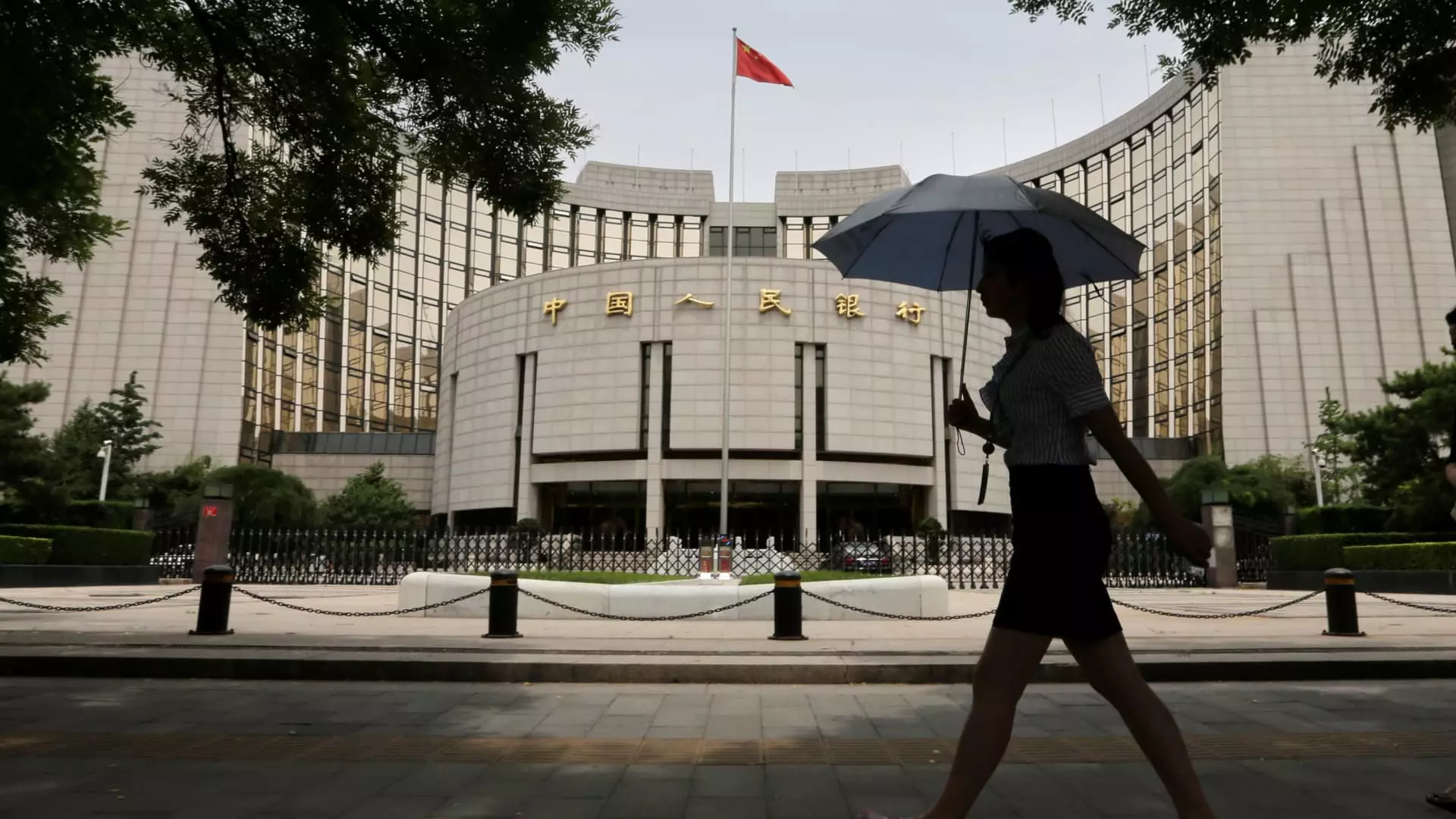As the U.S. Federal Reserve approaches a potential easing of its interest rate policies, the implications extend far beyond American borders. Analysts suggest that this shift could create significant flexibility for China’s central bank, as well as potentially revitalize the Chinese stock market. However, while optimism surrounds this monetary relaxation, several critical factors need to be scrutinized to understand the extent to which Chinese stocks may benefit from these changes.
The expectation that the Federal Reserve will start reducing interest rates presents a pivotal moment not only for the U.S. economy but also for global financial markets. According to experts from HSBC, the anticipated easing could serve as a catalyst for re-evaluating growth sectors within China, particularly those with strong earnings potential such as semiconductors and consumer electronics. HSBC forecasts that growth stocks in China could outperform value stocks by as much as 44 percentage points, thanks mainly to higher price-to-earnings ratios that growth sectors might command.
This scenario posits a direct correlation between U.S. monetary policy and the performance of the Chinese market. Historically, high interest rates in the U.S. have made U.S. Treasurys more appealing to global investors than Chinese stocks, drawing significant capital away from China. However, with the Federal Reserve considering cuts, analysts are optimistic about a possible turnaround, leading to increased investments in Chinese equities.
Despite the bullish sentiment toward Chinese stock valuation, serious doubts linger regarding their actual fundamentals. Laura Wang, a chief strategist at Morgan Stanley, emphasizes that the core drivers for investment allocation are not solely based on macroeconomic indicators but also the health of business fundamentals in China. With Chinese stock valuations not displaying positive correlations with U.S. Treasury yields in 2024, investors remain skeptical.
The iShares MSCI China ETF, a benchmark for tracking Chinese equities, has seen lackluster performance, stabilizing with marginal gains while reflecting significant declines over the past three years. While some analysts argue that the Chinese equities market is attractively priced, others contend that an apparent absence of a decisive economic catalyst is hampering investor confidence.
In addition to these valuation concerns, the persistent threat of deflation looms over the Chinese economy. A recent report indicated only a 0.3% year-over-year increase in the core consumer price index as of August. Yi Gang, a former governor of the People’s Bank of China, has identified an urgent need to address deflationary pressures, suggesting that such concerns extend beyond the crisis in the real estate sector to a broader “fundamental crisis of confidence.”
A critical barrier to economic recovery is the hesitance among businesses to increase capital expenditures, which have declined by 4% in the first half of this year—the slowest rate since 2017. This cautious approach primarily stems from uncertain business environments, leading to conservative spending patterns in sectors like industrials and renewable energy. Though sectors such as internet services and consumer goods have reported stronger earnings, the overall sentiment points to a reluctance to invest.
This cautious business sentiment complicates the outlook for the Chinese economy, implying that even if interest rates decrease, it may not automatically translate into increased consumer spending or business investment. The notion that government policy can stimulate growth while consumer confidence is low remains questionable, as highlighted by experts who assert that merely decreasing interest rates will not suffice if households opt to save rather than spend.
Examining the Path Forward for Chinese Equities
As market watchers keep a close eye on U.S. monetary policy, the path forward for Chinese equities will likely involve navigating a complex landscape of macroeconomic challenges and fundamental business realities. Despite the optimistic projections from HSBC—that the markets may see significant returns in the wake of U.S. rate cuts—the reality is multifaceted. To enhance their attractiveness, Chinese stocks will require more than just favorable monetary policy; they necessitate robust earnings growth and an improvement in overall economic sentiment.
Furthermore, as investors look toward sectors poised for growth in a potentially easing monetary environment, companies with solid fundamentals and innovative growth strategies, such as Muyuan Foods or Hengli Petrochemical, may emerge as frontrunners. These industries will be scrutinized for their capabilities to withstand macroeconomic pressures while capitalizing on the anticipated benefits of lower borrowing costs.
Ultimately, whether or not the anticipated easing of U.S. interest rates translates into a significant shift in the fortunes of Chinese markets will depend on a wide array of factors, both domestic and international. While there is cautious optimism, institutional investors will continue to demand rigorous analysis and strong performance metrics before committing significant resources to the Chinese equities market.

